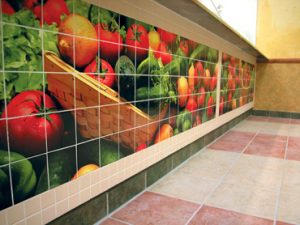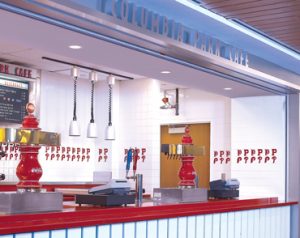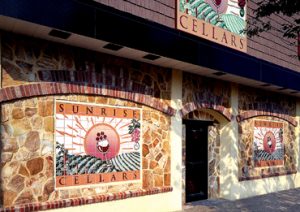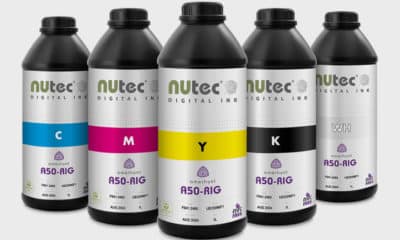Every sign company probably wishes it could find a niche, something unique and of great value. We believe our company, Imagine Tile, Inc. (Bloomfield, NJ), enjoys such an enviable position, thanks to an architect who was seeking a flooring solution and two subsequent patents.
Our customers love the combination of eye-catching graphics and impressive durability, whether it’s for individual accent tiles or complete murals of logos, artwork or products. The tiles’ commercial-wear rating and compliance with ADA slip-resistance regulations (such as the ASTM C-1028 static coefficient of friction) make them suitable for both wall and floor applications.
Any logo or visual idea a signage designer envisions can be fused to the tiles’ durable surfaces. Our tiles are impervious to UV light and will never fade, even in direct sunlight. They’re resistant to both acids and bases, as well as thermal shock.
Imagine Tile was founded in 1993, after having received a patent for a ceramic or porcelain tile with a high-resolution graphic image and a commercial-wear rating. A second patent covers the process by which the tiles are produced.
The latest technology allows us to reproduce textures, patterns, photos, illustrations and even 3-D images as a mural. We’ve developed several in-stock collections for both floors and walls. Nature brings the outdoors in; Urban takes you to the city streets, and Expressions explores colors and textures. Most of our murals, however, are custom designs.
Advertisement
The process begins with a graphic image, generally a photo, transformed digitally, to represent dimension on a flat surface. In our process, ceramic glazes act like printing inks. We take high-resolution steel screens, grind pure minerals and ores micro-fine, and suspend them in liquid to produce ink-like substances. The mineral- and ore-based image is applied to paper and coated with a refractory material that adds a glass finish.
We then print 400 lines per square inch (standard dye sublimation typically is limited to 60 lines per square inch). In the final process, which occurs at our Stafford, TX, production facility, the printed, glazed image is placed on the surface of a glazed ceramic or porcelain tile and fired at the tile’s original temperature. The two materials fuse into one.
We make custom tiles for such clients as the Subway restaurant chain and Major League Baseball’s Philadelphia Phillies.
“Our clients view our products not only as a tile-surfacing solution, but as a signage tool and an integral part of their marketing program,” says company president Christian McAuley.
For example, Subway chose two 2 x 6-ft. murals with photography that depicts fresh vegetables and tomatoes, along with simulated wood-grain tile, for several hundred locations per year. Sunrise Cellars, a Caldwell, NJ, liquor store asked us to reproduce its logo in ceramic tile for its exterior.
For each application, the murals fulfill multiple needs. For Subway, the mural promotes the “eat fresh” marketing campaign, yet also pro-vides vertical surfaces for food-prep areas that meet all health codes.
Advertisement
“Branding ourselves as the healthy alternative to fast food involves conveying the message of freshness in everything we do. In our store design, the murals that Imagine Tile created make a dramatic and instant impact on the consumer, sending the message of freshness and health consciousness,” according to Ruth Woyciesjes of Subway.
Sunrise Cellars doubly uses the murals as signage and as exterior art to beautify the store’s facade.
When the Philadelphia Phillies wanted to create a nostalgic feel for their new stadium, Citizens Bank Park, in 2004, they asked Imagine Tiles to create 4¼ x 4¼-in. tiles, which feature different historic franchise logos, for the concession stands. The logo tiles also create stripes across the concession stand walls. We created a custom version of our stock grass design to mimic their well-manicured playing field. These 16 x 16-in. floor tiles grace the Club Level restrooms to bring the outdoors in.
For the Noble Roman pizza chain, we created a 40-tile mural of the brand’s logo as a centerpiece. Solid-colored tiles of the brand’s corporate colors complement the murals. Decos and a diamond strip feature the logo and add to brand recognition.
Advertisement
For a retail environment, Imagine Tile created a custom tile, which replicates the look of rice-paddy fields in India, for the Timbuktu store in Las Vegas. The imagery seamlessly flows from tile to tile, but it’s actually a repetitive, 16 3 16-in. tile.
“When we chose Timbuktu as the name of our company, it was more about the sense of adventure it evoked than a place. Imagine Tile has done a fantastic job of creating the perfect tile for this atmosphere,” reports John Seifert and Cheryl Fleming, the founders of Timbuktu Station.
Miramar (FL) Outlets chose a custom, orange-grove tile to create a fun, durable floor for the seating area of its outdoor food court. A women’s cosmetics store, Skinmarket, didn’t need custom tile; it merely had its logo jet-cut into Imagine Tile’s stock grass tile for a floor signage solution.
“Imagine Tile’s cutting-edge design technology and ceramic-manufacturing process create a surface medium that is both aesthetically beautiful and extremely durable,” says McAuley, “The products are rugged and easily maintained, and can convey any visual marketing professional’s idea.”
For more about the company, go to www.imaginetile.com or call (800) 680-8453.
Lynda Portelli is Imagine Tile’s PR and marketing manager.
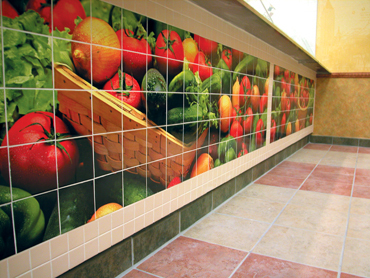


 Paula Fargo2 weeks ago
Paula Fargo2 weeks ago
 Real Deal1 week ago
Real Deal1 week ago
 Photo Gallery2 weeks ago
Photo Gallery2 weeks ago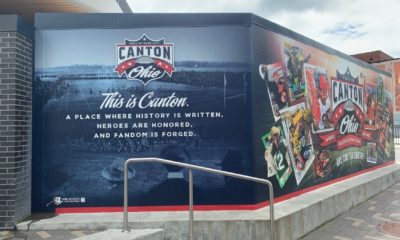
 Projects1 week ago
Projects1 week ago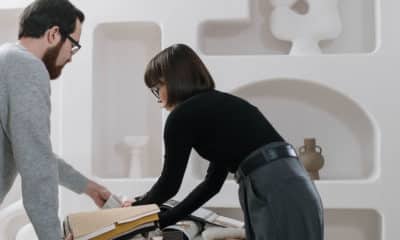
 Business Management1 week ago
Business Management1 week ago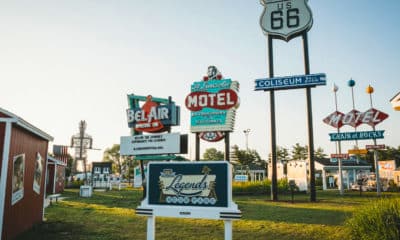
 News14 hours ago
News14 hours ago
 News1 week ago
News1 week ago
 Manager's To Do5 days ago
Manager's To Do5 days ago